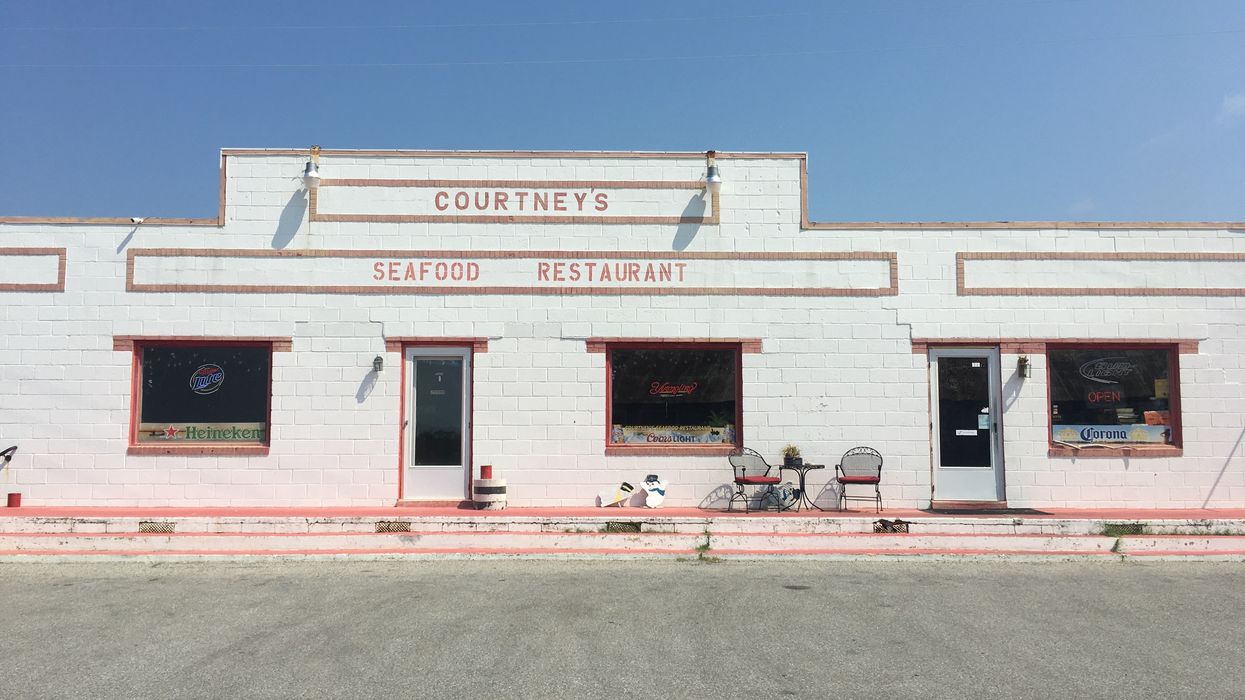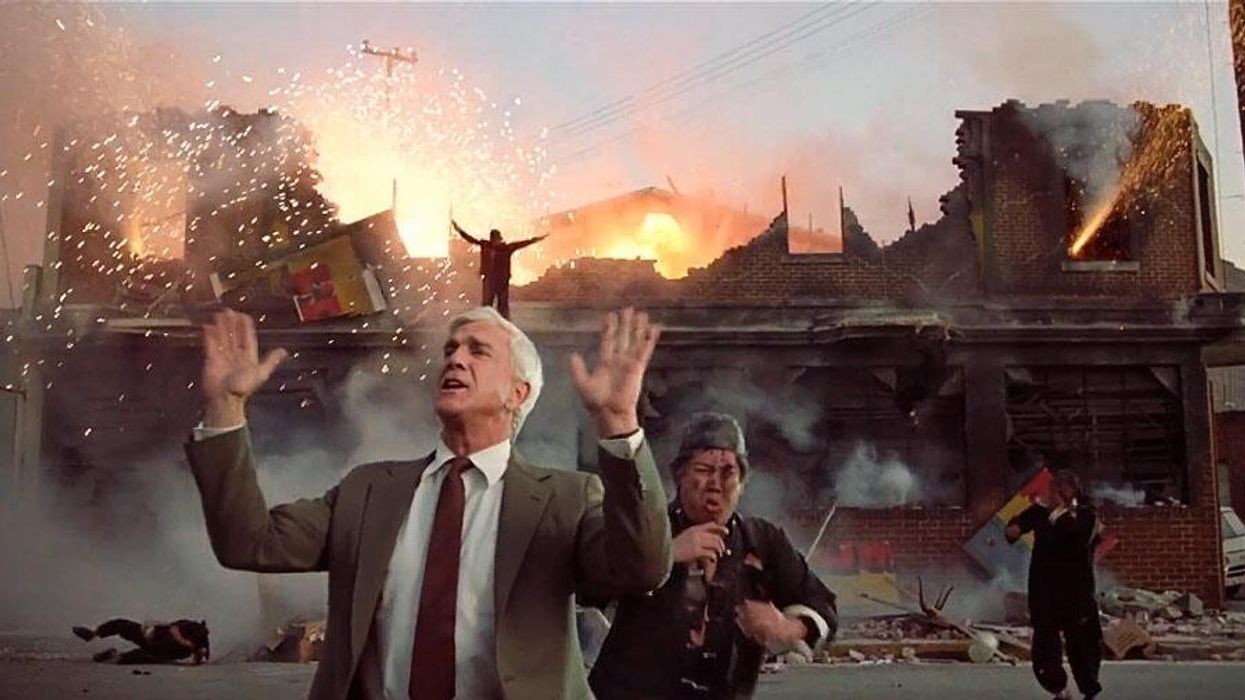[Editor's Note: No Film School asked our very own Multimedia Producer, Jon Fusco, to write about the process of making his first short film, The Guy.]
As a first-time filmmaker, I'm going through a massive series of firsts this week. After launching my first-ever Kickstarter last week for my first-ever short film, a sci-fi-horror/comedy entitled The Guy, I set off Sunday morning for my first-ever location scout. My DP and I left Brooklyn at around 9:00 in the morning to head down to the Chesapeake Bay in Maryland. As many of you filmmakers based in NYC know, finding a cheap and easy way to get out of the city without a car is certainly a good part of the battle.
After a full day and a half of scouting, I can say that I came back with more than a few concrete takeaways that will help you maximize both your time and money for a scout of your own. After all, acting as producer and director is a difficult and ultra time-consuming affair, but one that may be necessary to get your project off the ground.
For my purposes, I focused on finding a house, a restaurant, a dock, and a beach. Here's what I learned.

1. Don't be a dope about your car rental options
I was a big dope about the car rental, and it ended up costing me. Renting a car from a sleazy, sketchy low-end car rental service is an enormous risk and will not end up saving you money—even if their rates appear lower online. I learned this the hard way. I thought I was being smart in taking a train to the Newark International Airport (in hindsight, the location itself should've been a red flag) and renting a car from a budget rental service like Payless, Budget, Advantage, or Dollar. I wasn't.
After waiting for about an hour to finally get to the desk and receive my car from Advantage, I was informed they couldn't accommodate my reservation. So I walked over to another desk, Payless, and they were able to get me a car for a reasonable rate of about $80 a day. When I returned it, I was surprised to find over $200 in charges and fees added on, which I wasn't informed about.
These people are scam artists! This may come off sounding more like a Yelp review than a piece of advice; I'll be honest and admit I ignored all the Yelp reviews that warned about these services. Don't be like me.
If you don't own or can't borrow a car, spring for one of the top-tier rental car services like Hertz or Avis. Another great resource is Turo, sort of like the Airbnb of cars. Looking back, I would definitely have booked a Turo rental earlier in the week. I highly recommend you do, too.

2. See as many houses as possible
Speaking of Airbnb, I had a fantastic experience with every renter I reached out to. If you've picked your location to scout and are in need of some house interiors, go to Airbnb and just wreak havoc. Look at every single "entire house" option you can in the area. Even if it's a one bedroom option, many homeowners may be interested in letting you use their residence for a shoot. Also, don't limit yourself to the county you're looking at scouting; check out the surrounding counties as well.
A lot of renters are more than willing to let you stop by and scope out their place, even if you don't plan on staying there. In my case, many of them were even excited at the idea of having their house in a short film. Just plan ahead and give them a heads up. We went to about eight different Airbnbs in a day and a half.
Of course, stay at the cheapest one.

3. Read the pamphlets
You know when you stop off at rest stops or visitor centers and there's that rack full of tourism pamphlets? Those are an indispensable resource for finding interesting locations.
For my short, we needed a restaurant to film at, and we'd reached out to a few beforehand. When we got our hands on a tourist pamphlet which highlighted dining options in the county, however, we had a whole new range of options to check out that we would've never, ever heard about otherwise. We found a location that wasn't initially what we imagined, but could end up dramatically enhancing the story.

4. Talk to people!
Do not waste a single trip to a location. Talk to your Airbnb hosts and find out if they have any suggestions for locations for you to check out. Talk to the restaurant owners (or whatever business it is you're trying to find a location for); carve out 15-20 minutes to really get to know them and let them get to know you, as well. Not only will they be more likely to let you shoot at their location, but they may also end up giving you a lower rate because they feel drawn to you and the project. They may even know people in the area that you can end up hiring for your crew. One location owner I met referred me to a hair and make-up artist.
5. You do not need to bring your whole crew with you
Initially, I had planned on doing this first scout way back in July. Due to crew conflicts, however, we kept having to push back the date. Ultimately, you just have to accept the fact that everyone has a different schedule—especially when you're freelance—and it may not be possible to get everyone together. I ended up wasting a lot of time waiting for everyone's schedules to align. Much like yesterday's total eclipse, this is a phenomenon that only occurs once every 70 years.
If you're a low-budget, independent filmmaker looking to make your first film, all you need is your DP for your initial scout. It's most important that you both get a feel for the place and agree on the locations. Of course, it would be nice if the production designer could also join you so he/she could start thinking about how they'll fill the space, but if you take a lot of photos, your DP will suffice.
6. Scout your location at the correct time of day for your scene
This is a really important one and doesn't require much explanation. If you are shooting a scene at dawn, be up at dawn to scope it out. If you are shooting at sunset, same thing.
If you're interested in hearing more lessons from my pre-production process, let me know and I'll publish some more articles. And here's one last shameless plug for my Kickstarter. We're doing well so far in our first week, but could really use all of your help!














